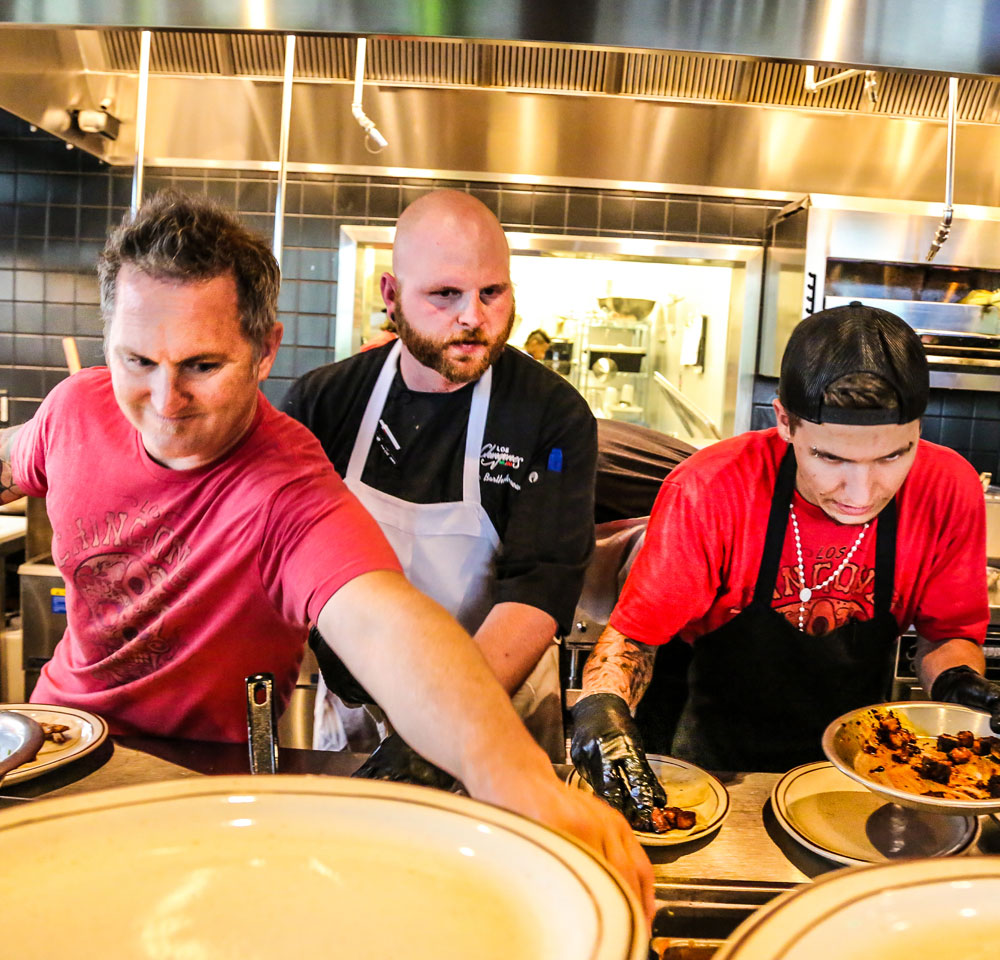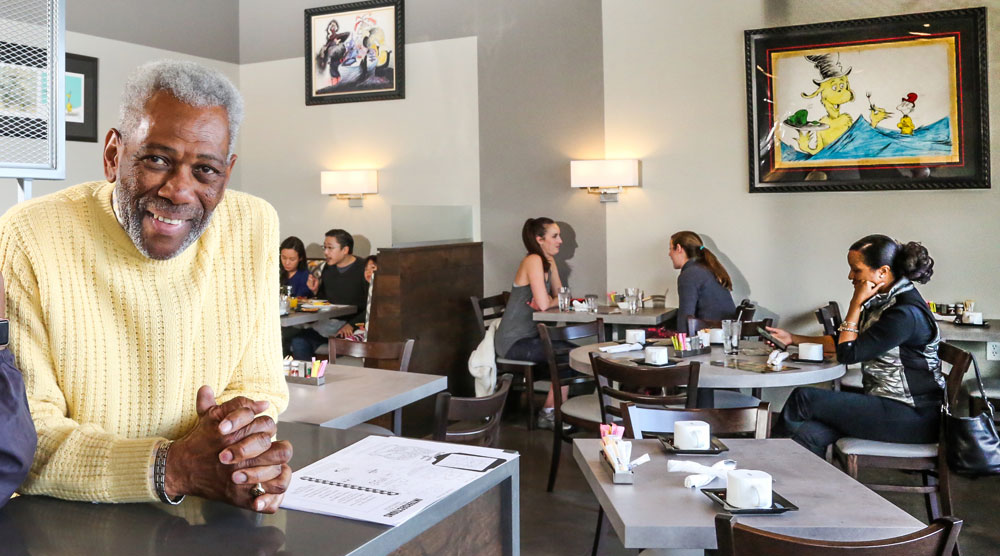
Rick Humbert (above), co-owner of Intersections, says he can’t stress enough that it was the generosity of the community, through orders and gratuities, that helped his restaurant survive the pandemic.
When the pandemic brought the restaurant industry to a screeching halt, owners were left with kitchens full of food, employees needing support, vendors to pay, leases to fulfill, and investors to account to. While many restaurants couldn’t withstand the impact and had to close, many made it to the other side. Four neighborhood restaurant owners share how they survived and how they’re changing their business models going forward.
“It takes 3-5 years for a restaurant to get its legs under it. We were 2 ½ years in when the pandemic hit,” says Rick Humbert, co-owner of Intersections, serving breakfast and lunch in Central Park. Like many restaurants, Intersections increased their carryout business. “People were supportive in patronizing us with orders and were very generous with their gratuities. The revenue from carryout kept the doors open and helped with our fixed expenses,” he says.
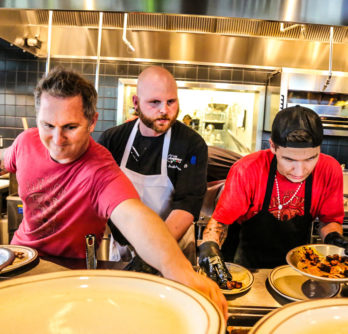
People asked Troy Guard (left) if he enjoyed all the downtime. But he went to the office daily to manage the situation with his numerous restaurants.
For Morgan McKay, who co-owns Oblio’s Pizzeria with her sister and mother, the nature of their product gave them an advantage. “We’ve been gifted in a sense because, as a pizzeria, it’s already a big takeout and delivery business,” she says. During the pandemic, they expanded their delivery radius beyond their Park Hill location to surrounding neighborhoods, continuing their practice of doing their own delivery, using staff as drivers to help keep them employed. They also added takeout wine, beer, and sangria.
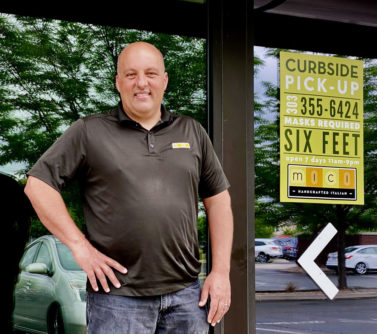
Focusing on a pared down menu, streamlining the phone system, and carryout helped Jeff Miceli’s family-owned restaurant, Mici Handcrafted Italian, get through the pandemic.
Mici Handcrafted Italian, which is opening a seventh Colorado location, refocused their marketing efforts to delivery, takeout, and curbside pickup, which was new for the 17-year-old company whose business is primarily dine-in. They also installed a new phone system that rang differently depending on whether it was a call for delivery or pickup to streamline response. The menu changed too. “Back in March and April of 2020, you didn’t know what was going to happen with staffing,” says Jeff Miceli, president and co-founder of Mici which has a location in Central Park. “So, simplifying our menu felt like the right thing to do. We took out things that were difficult to produce or weren’t selling.”
Troy Guard, chef/owner of TAG Restaurant Group, which operates seven concepts in more than fifteen locations in Denver metro area, and Houston, also reduced menu items which meant reduced kitchen costs.
“When March hit last year, it was like someone pulled the plug,” Guard says. “Being in the business for 35 years, I had never seen anything like this.” When the restaurants were closed, Guard went to his office daily. “I was figuring things out with our accountant, investors, banks, landlords, and vendors,” he says. When it came time to re-open, it was like opening a new restaurant, including ordering food, hiring staff, and cleaning – but in multiples.
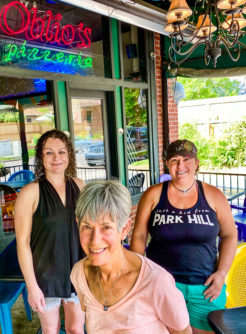
Expanding upon their existing delivery and carryout business helped co-owners Tegwin McKay (left), Morgan McKay (right) and their mother, (Dawn McKay), retain their Oblio’s Pizzeria staff.
Carryout and patio service were helpful, says Guard, but isn’t what saved them. “It was a means to keep going and break even or lose a little bit instead of a lot.” In Central Park, they took advantage of having side-by-side restaurants to provide spaced seating, spreading out Hashtag’s daytime diners into Los Chingones’ space and vice versa in the evening.
In recovery mode, the restaurants are keeping what worked during the pandemic. At Mici, they’re retaining curbside pickup, having learned that their customers, many of whom have children, appreciate not having to get out of the car. “The phone system has been a big improvement,” says Miceli. “We thought it was going to be a pandemic thing but it has been fantastic. And we haven’t brought back those menu items that we took off because we feel like we’re better-executing our core business.”
Miceli and his team are also moving ahead with plans to franchise to Dallas, Kansas City, and Phoenix. Franchising was part of their business plan from the start. “Pizza is one of those things that, if you do it well, it’s very resilient. As we simplify the process, our sales keep going up, so we’re feeling pretty good,” he says.
TAG Restaurant Group is also in growth mode, something they’d planned from the start as well. That has meant closing some concepts that aren’t conducive for growth while opening others that are. “This is an opportunity when entrepreneurs take advantage of down times,” he says.
Oblio’s Pizzeria plans to keep their expanded, no-contact delivery service going, along with curbside pickup, and takeout alcohol. They hope to bring back their popular Kids’ Night and Princess events as soon as they feel it’s safer. “Before the pandemic, Oblio’s was at its peak,” says McKay, “So it was such bad timing.”
At Intersections, Humbert is banking on the addition of alcohol to increase dine-in business along with maintaining the menu they, too, had honed down to best sellers. “We’re slowly coming back,” he reports. “We’re still challenged but at least we know it’s not a train in the tunnel, it’s light.”
Front Porch photos by Steve Larson

